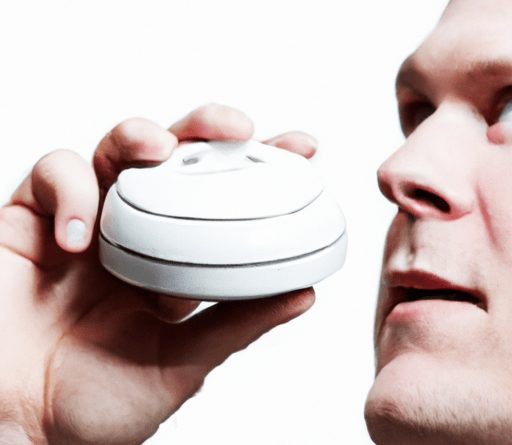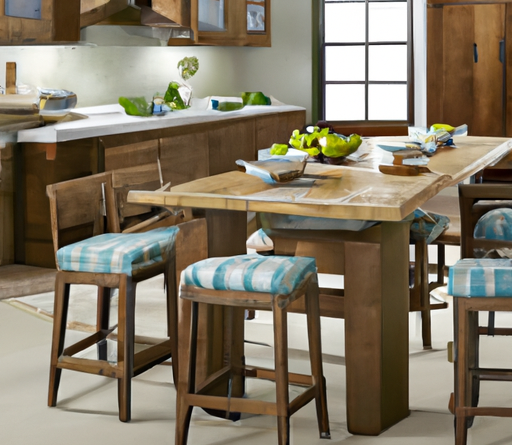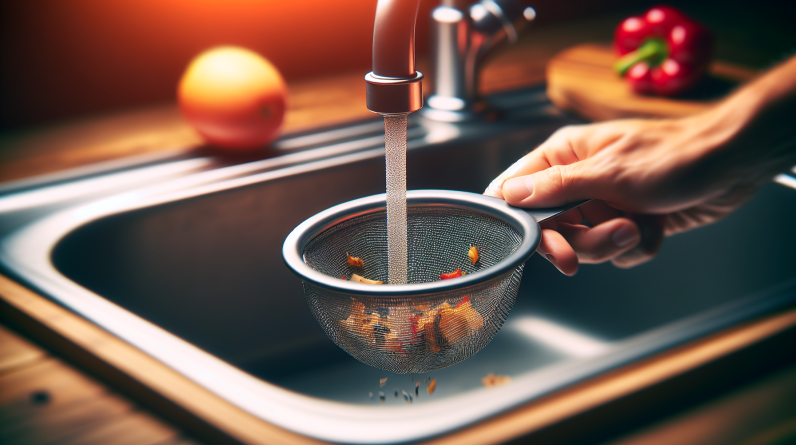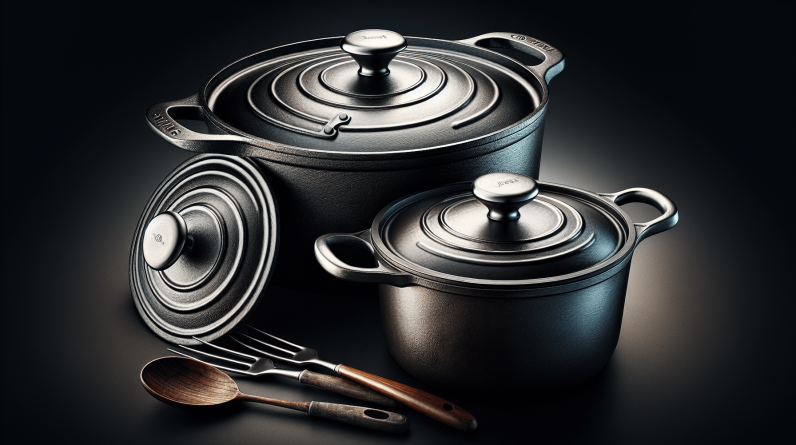Are you looking to get the most out of your kitchen appliances? We’ve got you covered! In this article, we will explore some simple yet effective tips and tricks to help you extend the lifespan of your beloved kitchen appliances. From regular cleaning and maintenance to smart usage habits, these practical suggestions will not only keep your appliances running smoothly but also save you money in the long run. So, if you’re eager to increase the longevity of your kitchen appliances, you’re in the right place! Let’s get started.

Regular Maintenance
Regular maintenance is crucial for extending the life of your kitchen appliances. By taking a few minutes each month to perform some simple tasks, you can ensure that your appliances stay in top-notch condition for years to come.
Clean appliances regularly
Keeping your appliances clean is a simple yet effective way to extend their lifespan. Wipe down the exteriors of your appliances with a damp cloth to remove any grime or dirt. For the interior of appliances like ovens and refrigerators, follow the manufacturer’s instructions to ensure you use the appropriate cleaning products. Regular cleaning not only keeps your appliances looking great but also prevents the buildup of dirt and debris that can cause damage or affect performance.
Check for and fix any leaks or drips
Leaking or dripping appliances can lead to water damage and potential malfunctions. Regularly inspect your appliances, such as dishwashers and refrigerators, for any signs of leaks or drips. If you notice any, take immediate action to fix the issue. It may be as simple as tightening a loose connection or replacing a faulty seal. Ignoring leaks can lead to more significant problems down the road, so it’s essential to address them promptly.
Replace worn-out parts
Over time, some parts of your appliances may wear out or become damaged. This can result in decreased efficiency or even complete breakdowns. Periodically inspect your appliances for any signs of worn-out parts, such as frayed cords or worn gaskets. Replace these parts as needed to keep your appliances functioning optimally. Consult the manufacturer’s instructions or seek professional help if you are unsure how to replace the parts yourself.
Inspect and clean the condenser coils
The condenser coils in appliances like refrigerators and freezers play a crucial role in cooling. However, these coils can become dirty or covered in dust, reducing their efficiency. Regularly inspect the condenser coils and use a brush or vacuum cleaner to remove any dirt or debris. This simple task can significantly improve the performance and lifespan of your appliances.
Proper Use and Care
Using and caring for your kitchen appliances correctly goes a long way in extending their lifespan. By following a few basic guidelines, you can ensure that you get the most out of your appliances and avoid unnecessary wear and tear.
Follow the manufacturer’s instructions
Each appliance comes with specific instructions on how to use and care for it properly. Make sure to read and follow these instructions carefully. They often include guidelines for cleaning, maintenance, and even troubleshooting common issues. By adhering to the manufacturer’s recommendations, you can avoid potential problems and extend the life of your appliances.
Avoid overloading the appliances
While it may be tempting to maximize the use of your appliances by overloading them, this can cause undue stress and wear on the internal components. Take care to follow the recommended load capacities for appliances such as dishwashers and washing machines. Overloading can lead to inefficient performance, increased energy consumption, and ultimately, premature breakdowns. Spread out your loads and ensure that your appliances are not subjected to excessive strain.
Use the appropriate settings
Modern appliances often come with several settings or modes designed for specific purposes. Make sure to use the appropriate settings for your needs. For example, using the correct heat setting on your stove or oven can prevent overheating or undercooking, prolonging the lifespan of these appliances. Refer to the manufacturer’s instructions to better understand the different settings and their intended use.
Avoid slamming doors or lids
Slamming doors or lids can cause damage to the hinges or seals of your appliances. This is especially true for appliances like refrigerators and ovens. Take care to close doors and lids gently to avoid unnecessary wear and tear. By treating your appliances with care, you can prevent premature damage and ensure they last for years to come.

Avoiding Excessive Wear and Tear
Preventing excessive wear and tear on your kitchen appliances is essential for their longevity. By avoiding common mistakes and misuse, you can ensure that your appliances stay in peak condition for the long haul.
Don’t use sharp objects on appliance surfaces
Using sharp objects such as knives or scouring pads on appliance surfaces can cause scratches or damage the finish. Treat your appliances gently and use appropriate cleaning tools to avoid any unnecessary wear and tear. Microfiber cloths or non-abrasive cleaners are often recommended for maintaining the integrity of the surfaces.
Avoid using harsh cleaning agents
While it may be tempting to use strong chemicals to tackle tough stains or dirt, these harsh cleaning agents can be detrimental to your appliances. They can damage the finishes, corrode components, or even compromise the electrical systems. Stick to mild and non-abrasive cleaning agents as recommended by the manufacturer to keep your appliances looking and performing their best.
Avoid excessive heat or cold
Extreme temperatures can place additional stress on your appliances and shorten their lifespan. Keep your appliances away from direct sources of heat, such as ovens or stoves, to prevent unnecessary strain. Similarly, avoid placing appliances in extremely cold areas, such as garages or outdoor spaces, as this can affect their performance. By keeping your appliances in a suitable environment and avoiding extremes, you can ensure their optimal functioning.
Avoid using appliances for unintended purposes
Every appliance has a specific purpose, and using them for unintended tasks can lead to damage or breakdowns. For example, using a blender to crush ice or a microwave to dry clothes can put undue stress on the appliances. Read the manufacturer’s instructions to understand the limitations and recommended uses for each appliance. By following these guidelines, you can prevent unnecessary wear and tear.
Proper Storage
Properly storing your kitchen appliances when not in use is crucial for their longevity. By taking a few extra steps, you can protect your appliances from dust, moisture, and potential damage.
Store appliances in a clean and dry environment
When your appliances are not in use, store them in a clean and dry environment. Moisture can lead to rust or electrical issues, while dust and dirt can clog vents and affect performance. Find a designated storage area that is free from excessive humidity or temperature fluctuations. Additionally, regularly clean the storage area to prevent the buildup of dust or debris that could come in contact with the appliances.
Use appliance covers or cases
Appliance covers or cases can provide an extra layer of protection against dust, moisture, and accidental bumps or scratches. Consider investing in covers specifically designed for each of your appliances. This additional safeguard can help keep your appliances in good condition, especially during long periods of non-use or when stored in areas prone to dust or debris.
Secure loose components
Some appliances may have detachable components or accessories. Make sure to secure these components properly before storing the appliance. Loose parts can become damaged or lost and may compromise the appliance’s functionality. Keep accessories organized and easily accessible to prevent any mishaps when retrieving and using your appliances.

Regular Inspections
Performing regular inspections on your kitchen appliances is a proactive approach to maintenance. By identifying potential issues early on, you can address them before they develop into more significant problems.
Check for loose or frayed cords
Examine the cords of your appliances regularly for any signs of fraying or damage. Faulty cords can pose a safety hazard and lead to electrical issues. If you notice any issues, have the cords repaired or replaced immediately. Avoid using appliances with damaged cords to prevent any accidents or further damage.
Test appliance safety features
Modern appliances often come equipped with various safety features, such as sensors or automatic shut-offs. Regularly test these features to ensure they are functioning correctly. For example, run a test cycle on your dishwasher’s safety lock or check that the oven’s temperature controls are accurate. If any safety features are not working as intended, contact a professional to have them repaired or replaced.
Inspect rubber gaskets or seals
Rubber gaskets or seals ensure a tight seal on appliances like refrigerators or dishwashers. Over time, these components can become worn out or damaged, compromising their effectiveness. Inspect the gaskets or seals regularly and look for any signs of cracking or deterioration. If necessary, contact the manufacturer or a professional appliance repair service to have them replaced.
Check for abnormal noises or vibrations
Unusual noises or vibrations during operation can be indicators of potential issues with your appliances. Regularly listen for any abnormal sounds or vibrations coming from your appliances. If you notice anything out of the ordinary, investigate further or consult with a professional to identify and address the problem. Catching and resolving these issues early can prevent further damage and prolong the life of your appliances.
Power Protection
Protecting your appliances from power surges and electrical damage is essential for their longevity. By implementing some simple power protection measures, you can safeguard your appliances from potential harm.
Use surge protectors
Power surges can cause significant damage to your appliances. Invest in high-quality surge protectors and use them for all your appliances. Surge protectors are designed to absorb the excess electrical energy during voltage spikes, protecting your appliances from potential damage. Make sure to follow the manufacturer’s instructions and replace surge protectors as recommended.
Avoid power surges
In addition to using surge protectors, take steps to avoid power surges. Unplug your appliances during thunderstorms or when you know there may be electrical issues. Additionally, avoid overloading circuits by using multiple high-powered appliances simultaneously. By being mindful of potential power surge risks, you can reduce the chances of damage to your appliances.
Unplug appliances during storms
During severe storms or power outages, it’s a good practice to unplug your appliances. Power fluctuations during storms can damage sensitive electrical components in your appliances. By keeping them unplugged during such events, you can protect them from potential harm. Additionally, this precaution can also reduce the risk of electrical hazards such as fires or electrical shocks.

Water Protection
Water damage is one of the most common causes of appliance malfunctions. Taking proper measures to protect your appliances from water-related issues is essential for their longevity.
Avoid water damage
Preventing water damage starts with identifying potential sources of leaks or moisture. Regularly check for and repair any leaks in your plumbing system that may affect your appliances. Additionally, ensure that appliances like dishwashers and washing machines are correctly connected and have no leaks or loose hoses. By addressing water-related issues promptly, you can protect your appliances from potential water damage.
Fix leaks promptly
If you notice any leaks in your appliances, such as under the sink or around the dishwasher, take immediate action to fix them. Ignoring leaks can lead to more significant problems, including mold growth, structural damage, and appliance malfunctions. It’s crucial to address leaks promptly to mitigate any potential damage to your appliances and your home.
Use water softeners or filters when necessary
If you live in an area with hard water, consider using a water softener or a filter to protect your appliances. Hard water can cause mineral buildup, clogging pipes, and affecting the performance of appliances like dishwashers, coffee makers, and washing machines. Installing a water softener or a filter can prevent these issues by removing minerals and other impurities from the water supply, prolonging the life of your appliances.
Proper Loading and Unloading
How you load and unload your kitchen appliances can have a significant impact on their lifespan. By following some best practices, you can avoid unnecessary strain and damage to your appliances.
Load dishwasher and washing machine correctly
When loading your dishwasher or washing machine, make sure to distribute the items evenly. This prevents overcrowding, which can lead to incomplete cleaning, increased wear on mechanical components, and even damage to delicate items. Follow the manufacturer’s guidelines regarding recommended load capacities and placement for your specific appliances. By properly loading your appliances, you can ensure optimal performance and longevity.
Unload appliances with care
When unloading appliances such as dishwashers or washing machines, handle the items with care. Rough handling or forcing items out can cause damage to the appliance’s interior, racks, or baskets. Take your time and be gentle while unloading to avoid unnecessary wear and tear. Treat your appliances with care to ensure they continue to function properly for an extended period.
Don’t overfill refrigerator or freezer
While it may be tempting to maximize the storage space in your refrigerator or freezer, overfilling these appliances can impede airflow, affect cooling efficiency, and potentially damage internal components. Follow the manufacturer’s recommendations regarding proper storage capacity and organization. Proper airflow allows your appliances to maintain consistent temperatures and minimizes strain on mechanical parts. By avoiding overfilling, you can help your refrigerator and freezer operate optimally and prolong their lifespan.

Regular Cleaning
Regular cleaning of your kitchen appliances is not only essential for maintaining their appearance but also for ensuring their proper functioning and longevity. Implementing a cleaning routine for your appliances is a simple yet effective way to extend their lifespan.
Clean appliance filters and vents
Many appliances, such as dishwashers, dryers, and ventilation hoods, have filters or vents that require regular cleaning. These filters collect dust, debris, and grease over time, hindering performance and reducing efficiency. Follow the manufacturer’s guidelines on how to clean these filters and vents. Depending on the appliance, you may need to vacuum, rinse, or replace the filters periodically. By keeping these components clean, you can prevent clogs, maintain airflow, and extend the life of your appliances.
Remove food debris from appliances
After each use, take the time to remove any food debris or spills from your appliances. For example, wipe down the stove or oven after cooking and clean out the microwave regularly. Food particles can accumulate over time and cause unpleasant odors, attract pests, and even affect the performance of appliances. By keeping your appliances clean, you can prevent these issues and ensure their optimal functioning.
Clean stove burners and oven racks
Stove burners and oven racks are often subjected to spills, grease, and food residue, which can cause buildup and affect their performance. Regularly clean these surfaces, either by scrubbing them or soaking them in a degreaser solution, depending on the manufacturer’s recommendations. By keeping these components clean, you can avoid uneven heat distribution, odors, and potential damage caused by residue buildup.
Defrost and clean freezer regularly
If you have a freezer, it’s crucial to defrost and clean it regularly. Ice buildup can reduce the efficiency of the freezer and increase energy consumption. Follow the manufacturer’s instructions or consult the appliance manual for the recommended defrosting frequency and procedure. Once defrosted, clean the interior of the freezer, removing any food residue or ice. By maintaining a clean and frost-free freezer, you can ensure efficient cooling, prevent frostbite, and extend the life of your appliance.
Professional Servicing
While regular maintenance can go a long way in extending the life of your kitchen appliances, there are times when professional servicing is necessary. Don’t hesitate to seek expert help when needed to ensure your appliances receive the care they require.
Schedule regular maintenance with professionals
Just as you schedule regular check-ups with your doctor or dentist, it’s essential to schedule regular maintenance visits with professional appliance technicians. These experts can inspect, clean, and service your appliances to detect and prevent potential problems. They have the knowledge and tools to perform thorough maintenance tasks that may be challenging for the average homeowner. By partnering with professionals, you can extend the lifespan of your appliances and address any issues promptly.
Seek professional help for repairs
When appliances break down or exhibit signs of malfunction, it’s essential to seek professional help for repairs. Attempting to fix complex issues without the necessary skills or knowledge can worsen the problem or even pose safety risks. Contact a reputable appliance repair service to diagnose and repair faults correctly. Professionals can efficiently troubleshoot and fix issues, ensuring that your appliances are back to their optimal condition and prolonging their life.
Take advantage of warranty services
Appliances often come with warranties that cover certain repairs or replacements within a specified period. Familiarize yourself with the terms and conditions of your appliance warranties. If your appliance experiences issues within the warranty period, take advantage of the warranty services provided by the manufacturer or authorized service centers. This can save you money on repairs and replacements and provide peace of mind knowing that your appliances are protected.
Consider extended warranties
If your appliances do not have existing warranties or if you want extended coverage, consider purchasing extended warranties. Extended warranties offer additional protection beyond the standard warranty period, typically covering repairs or replacements for a longer duration. While extended warranties may require an additional investment, they can offer valuable benefits, especially for appliances that are more prone to issues or subjected to heavy use. Evaluate the cost-benefit and make an informed decision based on your specific needs.
In conclusion, extending the life of your kitchen appliances requires a combination of regular maintenance, proper use and care, avoiding excessive wear and tear, proper storage, regular inspections, power and water protection, proper loading and unloading, regular cleaning, and occasionally seeking professional servicing. By following these guidelines and implementing these practices, you can ensure that your kitchen appliances remain reliable and functional for years to come. Your appliances will thank you with extended lifespans, and you’ll enjoy the benefits of a well-functioning kitchen.










